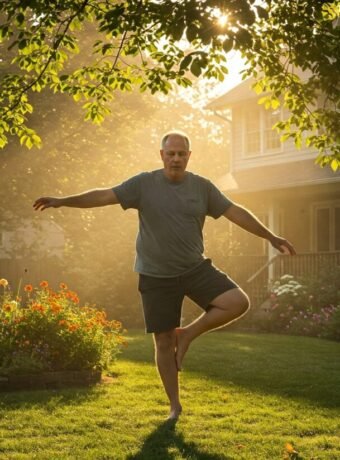Music’s allure knows no bounds. Its magical ability to stir emotions, calm the mind, and lift the soul makes it a potent force. And guess what? Seniors are no exception to this enchanting power. In fact, for them, it’s like a melody of health and joy, striking all the right chords. Music therapy for seniors has emerged as a highly regarded approach.
Everyone appreciates music, right? Prepare to delve into something extraordinary – Music Therapy for Seniors. This article delves into how this harmonious combination of melodies can greatly benefit our seniors, enhancing their well-being and joy.
Understanding Music Therapy for Seniors
Ever heard of Music Therapy for Seniors? It’s like a super cool way of using music to help seniors feel better physically, emotionally, and socially. So, instead of just talking about feelings, they jam out to tunes that match their mood!
Certified music therapists are like musical wizards. They personalize the music experience for each senior, making sure it hits all the right notes for their needs. The focus is not on musical talent or performance but rather on the process and experience of engaging with music.
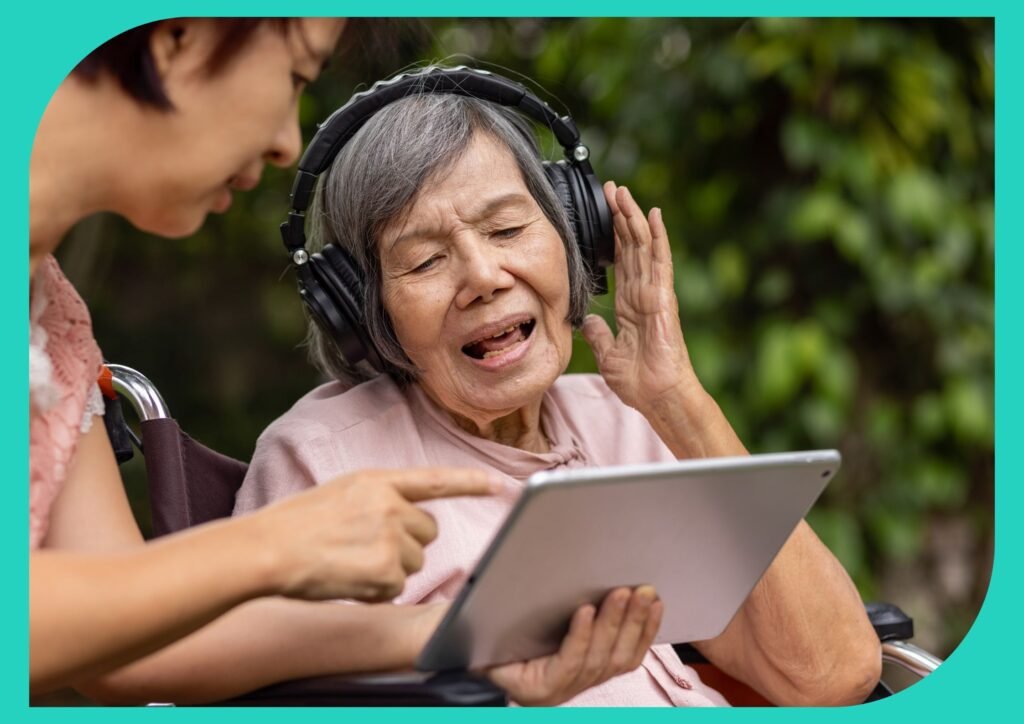
Prefer to listen rather than read?
The Therapeutic Power of Music for Seniors
Music has a rich history as a therapeutic tool. Ancient Egyptians and Greeks saw it as a means to promote personal growth. Psychoanalysts from the 19th and early 20th centuries suggested that music could help express inappropriate desires in a culturally appropriate way.

Today, more and more mental health professionals prescribe music therapy for seniors who suffer from anxiety. Some even recommend music therapy for seniors who struggle with dementia, schizophrenia, cerebral ischemia, and other brain disorders.
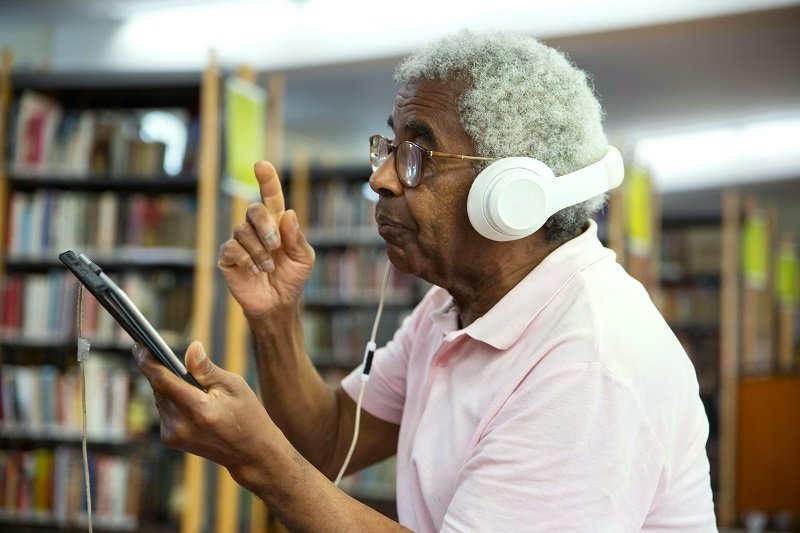
Emotional Well-being
Music therapy for seniors can evoke emotions and memories, offering a valuable outlet for emotional expression and connection, especially for those experiencing loneliness, isolation, or depression.
Music therapy can evoke joy, nostalgia, and contentment, ultimately boosting emotional well-being and overall happiness. Participating in music-making activities amplifies the therapeutic advantages. Seniors can sing their favorite songs, play instruments, or join group music sessions.
These interactive experiences foster self-expression, social connection, and a sense of belonging. Music-making provides a supportive environment for seniors to connect with like-minded individuals who share their passion for music.
Furthermore, music has a scientifically proven ability to promote relaxation and decrease stress levels by inducing a sense of calmness and tranquility through rhythmic patterns and melodic structures.
This, in turn, can have a positive impact on seniors’ overall well-being, leading to improved mental and emotional health.
Cognitive Enhancement
Daniel Levitin, a psychology professor at McGill University in Canada, researches the cognitive neuroscience of music. He notes that music activates almost all brain regions mapped to date, surprising many people.
This suggests music’s universality and power to affect us. It is also hints at the positive benefits of music therapy for seniors who deal with cognitive issues.
Studies have shown that engaging in music therapy for seniors can have a profound impact on their cognitive abilities. Listening to music activates various regions of the brain associated with memory and cognition, stimulating neural connections and promoting mental agility.
Music therapy for seniors enhances memory recall in individuals with age-related memory impairments, such as Alzheimer’s disease and dementia. Engaging with music stimulates different areas of the brain responsible for memory and cognition.
It promotes neuroplasticity and neural connections, creating a stimulating cognitive environment. Music therapy for seniors challenges and trains various cognitive processes simultaneously, contributing to seniors’ cognitive vitality and well-being.
Physical Benefits
Music therapy also offers physical benefits for seniors. Rhythmic patterns in music can help improve coordination, motor skills, and balance.
In addition, participating in musical activities, such as playing an instrument or engaging in rhythmic movements, can enhance physical endurance and strengthen muscles. These physical benefits contribute to an overall improvement in seniors’ physical well-being and vitality.
Implementing Music Therapy Programs for Seniors
“Music therapy starts with the idea that, as therapists, we’re collaborating with a person who’s looking to help themselves to feel more complete or optimistic – or to discover parts of themselves they aren’t aware of – using music,” says Alan Turry, who is the managing director of the Nordoff-Robbins Center for Music Therapy in New York University.
To effectively harness the benefits of music therapy for seniors, it is essential to design and implement tailored programs. Here are three key approaches:
Creating Personalized Playlists
Music therapists collaborate closely with seniors to curate personalized playlists that align with their preferences and life experiences. These carefully crafted playlists feature familiar songs that hold deep significance for the individual.
By listening to these tailored playlists, seniors can embark on a nostalgic journey, as the music triggers memories and emotions. This process not only promotes emotional well-being but also facilitates meaningful connections to their past.

Interactive Music Sessions
Interactive music sessions offer seniors the chance to actively participate in music-making. Whether it’s playing instruments, singing along, or moving to the rhythm, these sessions provide valuable opportunities for self-expression, social interaction, and creativity.
Engaging in group music-making activities fosters a sense of community and belonging among seniors. It creates a supportive environment where they can connect with others who share their passion for music.

Through collaborative music experiences, seniors can discover new talents, share their unique perspectives, and forge meaningful relationships. The interactive nature of these sessions enhances their overall well-being, promotes cognitive stimulation, and brings a sense of joy and fulfilment to their lives.
Music and Movement
Integrating music and movement activities holds immense potential for enhancing the physical and emotional well-being of seniors. When seniors engage in dancing, gentle exercises, or rhythmic movements synchronized with music, they experience a harmonious blend of therapeutic benefits and physical activity.
The combination of music and movement promotes increased flexibility, as the body responds to the rhythmic patterns and melodies. Seniors can enjoy an improved range of motion, enhanced muscle strength, and better joint mobility through these activities.
Moreover, the coordination required to synchronize movements with the music enhances their motor skills and balance, reducing the risk of falls and improving overall physical stability.
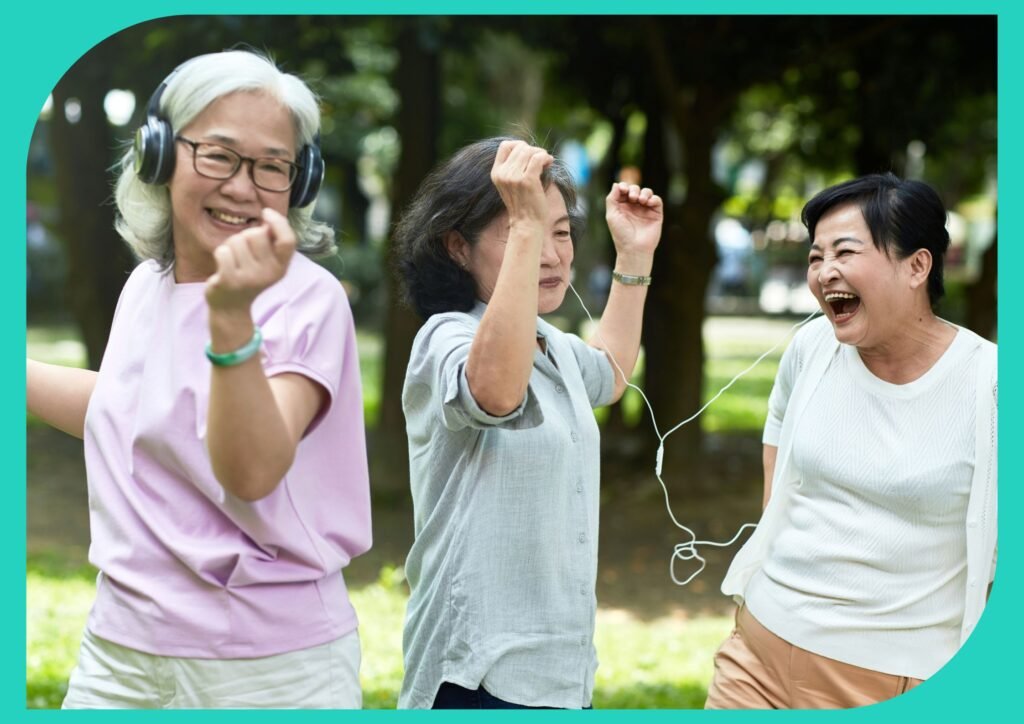
Engaging in these activities also releases endorphins, which can reduce stress, anxiety, and depression. The holistic music and movement experience nurtures a positive mindset and boosts emotional resilience.
Case Studies: Success Stories of Music Therapy
The efficacy of music therapy for seniors is strongly backed by various case studies, showcasing its profound effects on well-being and ability to induce long-lasting positive changes.
Those who participate in music therapy for seniors often experience a sense of belonging and connection with others. Group music-making activities create opportunities for social interaction, fostering a supportive and inclusive environment. This sense of community promotes social engagement, reduces feelings of isolation, and enhances the overall quality of life for seniors.
Collectively, these case studies reinforce the transformative power of music therapy for seniors. They demonstrate how music, in its various forms and applications, can bring about positive changes in emotional well-being, cognitive function, and social connectedness.
Challenges and Considerations
While music therapy for seniors offers significant benefits, it is essential to acknowledge and address various challenges and considerations that may arise. In studying the therapeutic benefits of music, researchers have conducted most of their investigations on either older people or infants.
Seniors are more likely to prefer opera or classical music based on personal taste. On the other hand, babies have yet to develop any personal preferences at all. They simply respond to what they hear.
For the generations in the middle, for whom classical music may be somewhat foreign, self-selected alternatives may be the better option. If an older person does not find music inherently enjoyable, the positive benefits of music therapy may not be as significant.
Still, highly respected psychologists say the benefits of music therapy for seniors outweigh its limitations.
Levitin says the rhythm and characteristics of the music patients select can better modulate their heart rates and the activity of their brain’s neural networks. “There’s no one piece of music that will do the same thing for everyone,” Levin says.
Therefore, it is crucial for music therapists to tailor their approach and playlists to cater to the unique needs and interests of each senior.
Accessibility and Equipment
In addition to the diverse challenges faced by seniors in music therapy, physical limitations and health conditions can significantly impact their ability to fully engage in therapy sessions. It is crucial to adapt activities and ensure accessibility to ensure that all seniors, regardless of their physical capabilities, can participate and benefit from music therapy.
Seniors with physical limitations need modified music therapy activities. Adaptive instruments and gentle seated movements enable active participation. Adapting activities ensures therapeutic benefits for all seniors, regardless of their abilities.
Ensuring access to music therapy for seniors in care homes or community centres requires sufficient equipment and resources. Accessible facilities, appropriate seating arrangements, and assistive devices are necessary to create a supportive environment. Having a variety of instruments, including ones designed for individuals with physical challenges, can enhance participation and inclusivity.
Sustaining and expanding music therapy for seniors depends on adequate funding and collaboration with healthcare providers. Securing funding ensures the availability of qualified music therapists, necessary equipment, and ongoing training and professional development.
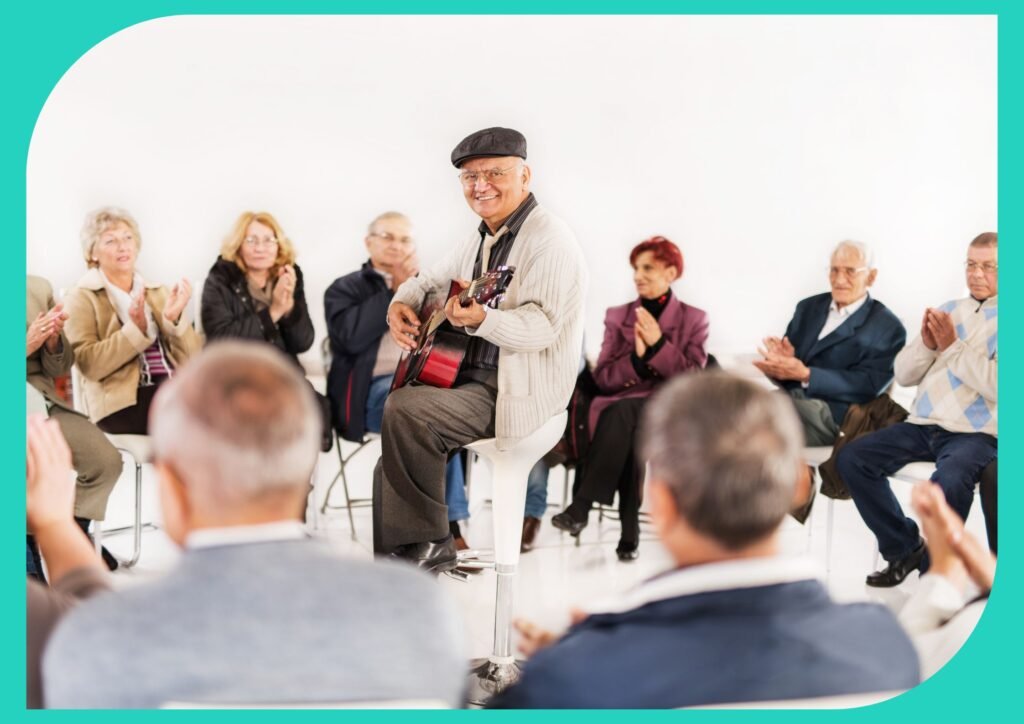
Collaborating with healthcare providers, including geriatric specialists and rehabilitation professionals, helps integrate music therapy into comprehensive care plans and promotes its recognition as a therapeutic intervention for seniors.
To reach more seniors, music therapy should address physical limitations, enhance accessibility, establish sustainable programs, and collaborate for funding. This will extend the transformative benefits of music therapy for seniors, improving their well-being and enjoyment.
Cultural Sensitivity
Music preferences are deeply influenced by cultural backgrounds and personal experiences, making it crucial to recognize and respect the diverse musical tastes and traditions of seniors in music therapy programs. Cultural sensitivity plays a vital role in creating inclusive and meaningful experiences for seniors.
Seniors from different cultural backgrounds may have specific genres, instruments, or rhythms that hold significant meaning in their lives.
By incorporating these elements into music therapy for seniors sessions, therapists can establish a sense of familiarity, connection, and comfort. This approach honours and acknowledges the cultural heritage of seniors, creating an environment where they feel valued and understood.
Furthermore, cultural diversity in music therapy enriches the therapeutic process itself. It opens avenues for seniors to share their stories, memories, and emotions through music, providing a platform for self-expression and reflection. By embracing a wide range of musical styles and traditions, therapists can tap into the unique healing potential that each cultural expression offers.

Culturally sensitive music therapy programs also promote social cohesion and intercultural understanding among seniors. It encourages the exchange of musical knowledge, promotes curiosity and appreciation for diverse musical traditions, and fosters a sense of unity among participants.
To ensure cultural sensitivity, music therapists must be aware of their own biases, continually educate themselves about different musical traditions, and actively engage seniors in the decision-making process regarding music selection and activities. By embracing diversity and cultural inclusivity, music therapy programs can become truly transformative, honouring the individuality and uniqueness of each senior’s musical journey.
The Future of Music Therapy for Seniors
With the increasing recognition of the numerous benefits of music therapy for seniors, its integration into senior care is anticipated to expand significantly.
As awareness spreads, there is a growing understanding of the profound impact music can have on the well-being of seniors. This heightened awareness is driving further research and fostering collaboration between music therapists, healthcare professionals, and caregivers.
Through ongoing research and collaboration, innovative techniques and approaches are being developed to maximize the therapeutic potential of music therapy for seniors. This collaborative effort allows for the exploration of new methods, the refinement of existing practices, and the customization of interventions based on individual needs and preferences.
By harnessing the collective expertise and experience of music therapists, healthcare professionals, and caregivers, the field of music therapy for seniors is poised to evolve and advance.
The future holds immense potential for music therapy for seniors to become a widely recognized and integrated practice in senior care.
As more evidence is accumulated, demonstrating the positive outcomes and cost-effectiveness of music therapy, it is anticipated that its integration into standard care protocols will become more prevalent.
This recognition and integration will not only enhance the quality of care provided to seniors but also contribute to their overall well-being, emotional resilience, and improved quality of life.
Expanding awareness of the benefits of music therapy, coupled with ongoing research and collaboration, sets the stage for a promising future in senior care. By leveraging this momentum, we can continue to unlock the full potential of music therapy for seniors and ensure its widespread recognition and incorporation as a vital component of holistic care for seniors.

Conclusion
In the world of caring for seniors, music therapy for seniors shines like a star on stage, filling their days with beautiful melodies and heartfelt connections. This unique approach doesn’t just touch the surface; it dives deep into the emotional, cognitive, and physical realms, creating a symphony of positive changes in their lives.
But the magic doesn’t stop there. Interactive sessions burst forth with vibrant energy as seniors, guided by the rhythm’s guiding hand, sing, sway, and create melodies of their own.
So let us celebrate the transformative power of music therapy for our cherished loved ones, for within its melodies lies the key to unlocking a world of joy, connection, and a life lived in harmonious resonance. Well, what do you think?
FAQ: Music Therapy for Seniors
- How can live music concerts be beneficial for seniors?
- Live music concerts offer seniors emotional, cognitive, and physical benefits while fostering social connections and cultural enrichment. The emotional impact of music reduces loneliness and creates a sense of community, even through virtual events. Listening to music stimulates memory and mental agility, while gentle movements to music promote relaxation and physical activity. Additionally, live concerts allow seniors to explore diverse genres and traditions, enhancing their appreciation for the arts and enriching their overall quality of life.
- How can music aid in quicker recovery for older adults from surgeries or strokes?
- Music accelerates recovery in older adults after surgeries or strokes by addressing both physical and emotional needs. It helps manage pain by reducing stress and providing a calming distraction, which lessens discomfort. Music also stimulates neural pathways, aiding cognitive recovery and promoting neuroplasticity, particularly beneficial for stroke patients. Additionally, it boosts emotional well-being by evoking positive memories and uplifting mood, creating a more supportive environment for healing.
- What are sound baths, and how do they benefit seniors?
- Sound baths are therapeutic sessions where seniors are immersed in soothing sounds from instruments like Tibetan bowls and gongs, promoting relaxation and healing. They help reduce pain and support natural healing through gentle vibrations, offering a calming experience for older adults. Sound baths also enhance mental well-being by relieving stress and encouraging mindfulness, while improving physical health by lowering blood pressure and boosting the immune system. This holistic practice provides a peaceful way for seniors to improve both physical and emotional health.
- What role does music play in reducing pain for patients?
- Music plays a vital role in reducing pain and improving patient comfort during medical procedures and recovery. It distracts the mind, decreasing the perception of pain, and promotes relaxation before, during, and after surgery. Beyond physical pain relief, music fosters emotional well-being, reducing anxiety and creating a positive recovery environment. Integrating music into patient care routines is an effective way to enhance both pain management and overall patient satisfaction.
- How can virtual karaoke benefit seniors during social distancing?
- Virtual karaoke provides seniors with an accessible and enjoyable way to connect and engage during social distancing. It fosters social connection, reducing isolation by allowing seniors to interact with peers and build friendships. Singing familiar tunes enhances cognitive functions, boosts mood, and provides emotional release, promoting mental and emotional well-being. Additionally, it improves physical health by encouraging proper breathing techniques, all while being conveniently accessible from the comfort of their homes.
- How can the game of musical chairs be adapted for seniors?
- Adapting musical chairs for seniors transforms it into a safe, engaging, and enjoyable activity. Use supportive, stable chairs arranged with ample space, and play familiar tunes at a comfortable volume to create a nostalgic and inviting atmosphere. Adjust the game rules by encouraging slower movements, gentle dance steps, or clapping to ensure inclusivity and reduce physical strain. For virtual adaptations, use video conferencing tools and coordinate music pauses with simple movements, fostering social interaction and light exercise even from a distance.
- Are there real-world examples of these activities being implemented?
- Yes, organizations like Televeda have hosted sing-along classes, sound bath sessions, and live virtual concerts. They have also integrated dance into fitness programs, showcasing practical applications of these music activities for seniors.
- What tools and resources are needed for these activities?
- For Virtual Karaoke, tools like lyric screens and song recordings are essential. Sound Baths require instruments such as singing bowls. Live Music Concerts need a reliable streaming platform. Dance activities benefit from music tracks and possibly instructional videos. Musical Chairs requires space and music playback equipment.
- What are the benefits of each specific activity?
- Virtual Karaoke fosters social interaction and enjoyment. Sound Baths offer relaxation and healing benefits. Live Music Concerts provide cultural enrichment and a sense of community. Dance improves physical health, including agility and balance, while Musical Chairs combines music with fun and friendly competition, enhancing social bonds.
- How can these activities be conducted practically?
- Virtual Karaoke can be organized online, allowing seniors to connect and sing together. Sound Baths involve using instruments like Tibetan singing bowls to create soothing sounds. Live Music Concerts can be streamed online for safe enjoyment, while Dance activities can be adapted for individual ability levels. Musical Chairs can be played in-person or virtually, depending on the situation.
- What are specific music activities seniors can participate in?
- Seniors can engage in activities such as Virtual Karaoke, Sound Baths, Live Music Concerts, Dance (Music & Movement), and Musical Chairs. These activities offer diverse ways for seniors to enjoy and benefit from music.
Disclaimer
The content provided on MySeniors.World is for informational purposes only and is not intended as either financial or medical advice. Always consult a qualified professional before making any investment or health-related decisions.
Posts may contain affiliate links, meaning we earn a commission – at no additional cost to you, if you click through and make a purchase. Your support helps us continue providing valuable content.

